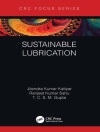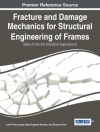This book explains the basic and fundamental aspects of nanotechnology and the potential use of nanostructured photocatalysts in various applications, especially in the context of the environment and energy harvesting. It describes the preparation and characterization of unique nanostructured photocatalysts and provides details of their catalytic action, and also discusses the design of new types of photocatalysts with controlled nanostructures. Given its broad scope, the book will appeal to academic and industrial researchers interested in heterogeneous photocatalysis, sustainable chemistry, energy conversion and storage, nanotechnology, chemical engineering, environmental protection, optoelectronics, sensors and surface and interface science.
قائمة المحتويات
Chapter 1: A Fundamental Overview.- Chapter 2: Nanostructures Fabricated by Physical Techniques.- Chapter 3: Nanomaterials for safe and sustainable Environment: Realm of Wonders.- Chapter 4: Understanding the Physics of Photocatalytic Phenomenon.- Chapter 5: Role of Metal Oxide/ Sulphide/carbon Based Nanomaterials in Photocatalysis.- Chapter 6: Plasmonic Photocatalysts and Their Applications.- Chapter 7: Challenges and Future Prospects.
عن المؤلف
Dr. Muhammad Bilal Tahir is a researcher at the University of Gujrat, Pakistan, currently focusing on nanotechnology for material processing, photocatalysis, energy and environmental applications, colloids and surfactants. His initial work was on photocatalysis-based processes for decontamination of pollutants, adsorption of heavy metals in water and oil and energy production.
Prof. Dr. Muhammad Shahid Rafique has over 20 years of research experience in the field of laser–matter interaction; plasma, micro- and nanomaterials; and photocatalysis, and he has been involved in research projects in Austria, Singapore and Pakistan. Currently, he is the Dean of the Faculty of Natural Sciences and a Professor at the Department of Physics, University of Engineering and Technology, Lahore, Pakistan, and is collaborating in various research projects.
Dr. Muhammad Sagir has over 10 years of research experience in the field of oil and gas, enhanced oil recovery, surfactants and photocatalysis. He has worked in Malaysia and Pakistan, and has been involved in a number of research projects in various capacities. He is currently working as an Assistant Professor at the Department of Chemical Engineering, University of Gujrat, Pakistan.
Prof. Dr. Faheem Malik has worked in research, administration and teaching in higher education and for various ministries in Pakistan for the last twenty-eight years. He has served at higher education institutes as the Vice Chancellor; Dean; Faculty Director; Chair of Academic Departments Director of Institutes, Student Affairs, and Planning and Development; Additional Registrar; and Chairman of various committees












